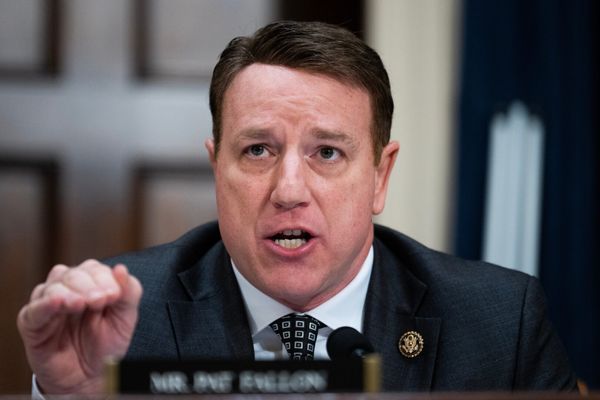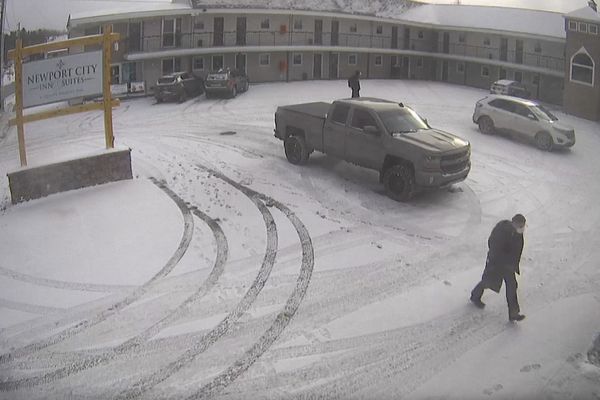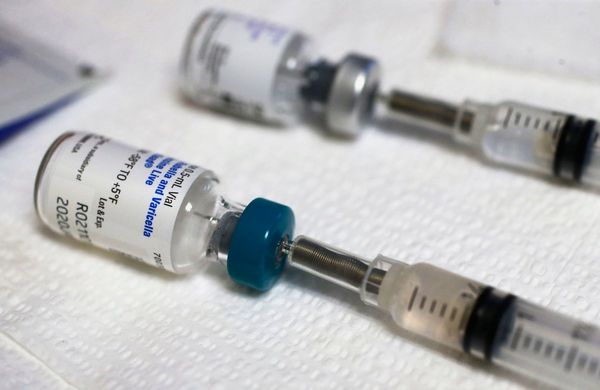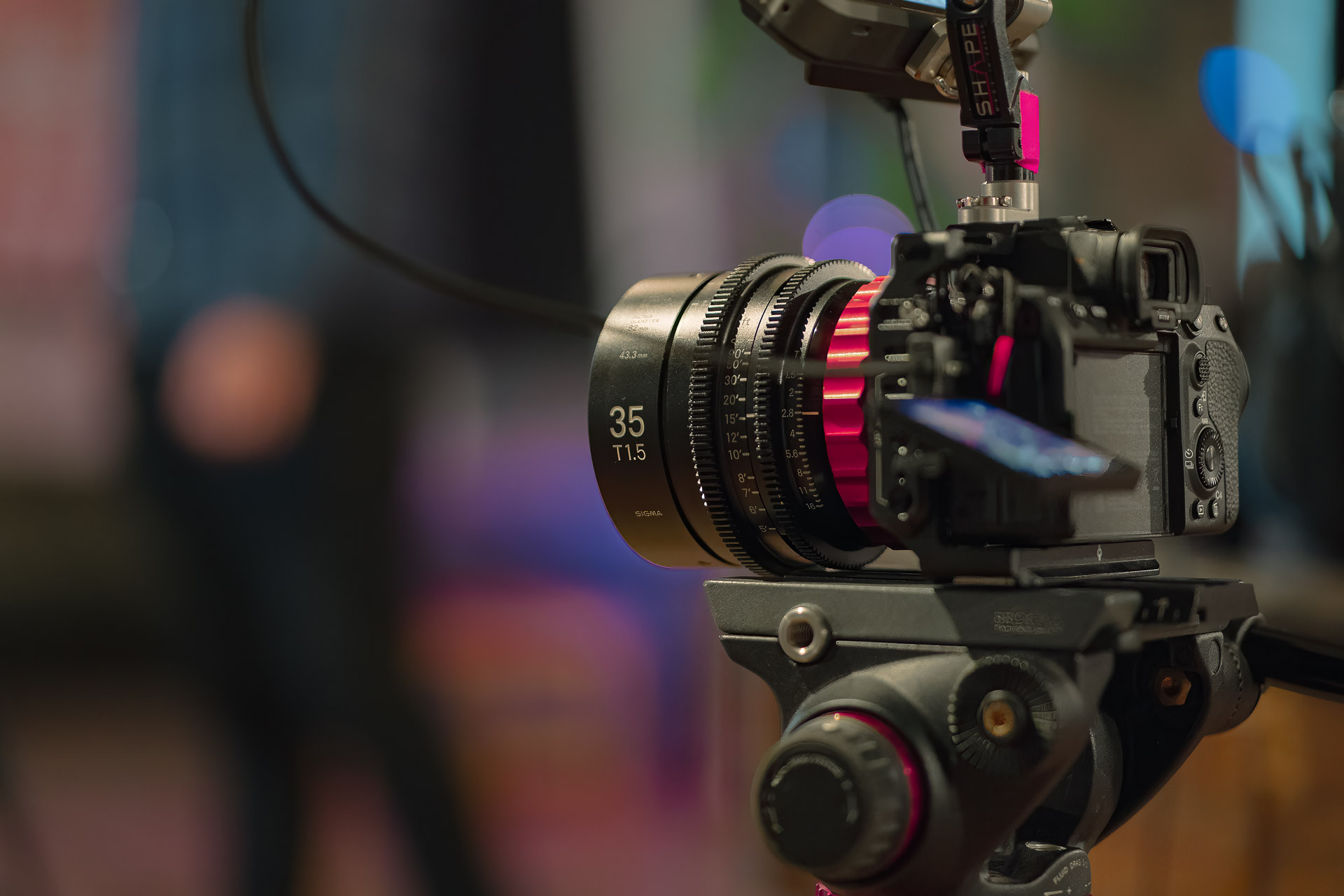
As show budgets increase, scope burgeons, and costs to subscribers spiral out of control, it’s time to look at new ways to make high quality content. Film and TV production is often locked into an inherited loop. Few would argue that if the industry were to start fresh today we’d do things in a different way. Technology and multidisciplinary people are at the forefront of this coming revolution. As is the availability of user generated content sites like YouTube and TikTok.
Our production company, Twelve Noon Films, was founded on the principles of embracing new methods of working and learning from the rich history of indie filmmaking. And they’ve created a proof of concept that showcases exactly how it’s done. The result is Forty Minutes With – a one-of-a-kind general interest talk show shot at broadcast quality.
We’ve been making case studies and interview-based content for years. I’ve always been interested in learning from people and hearing their stories in shows like Inside The Actors Studio, Parkinson, and Letterman. So we decided to do something that takes its inspiration from the great, but with a technology-empowered twist to remove the constraints of huge budgets and crews.
Working closely with Director of Photography, Jake Davies, at Twelve Noon Films we created a concept that would be easy to set up, replicate, and maintain with a crew of just four people. When you think about what a production really needs, it’s picture and sound. You’re always going to be capable of achieving more with a larger crew, but the evolution of software and hardware has dramatically reduced the actual need to go down that route.
The right tools
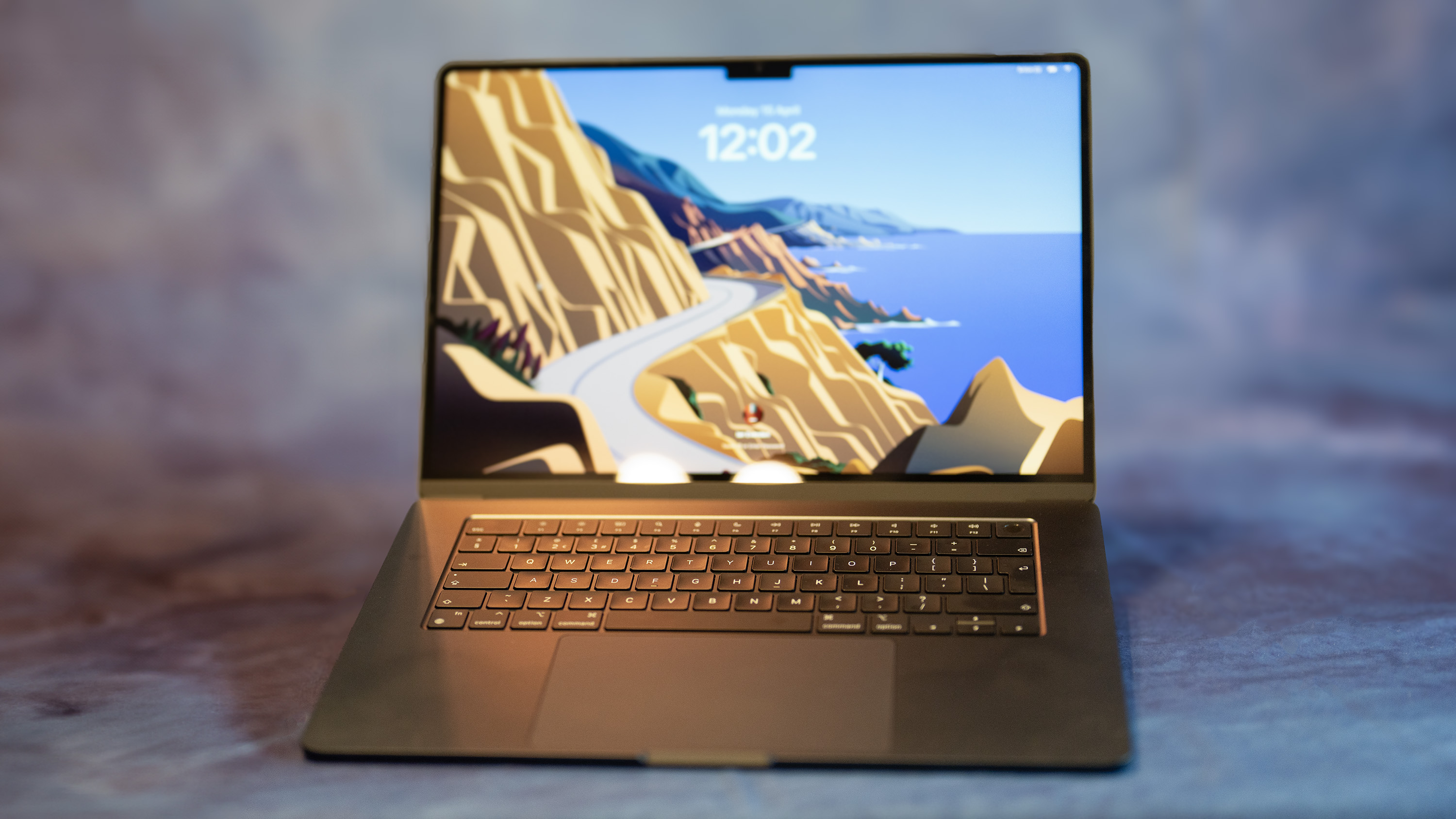
Corporate films have used a version of this approach for years, usually due to budget constraints placed upon marketing teams. The high-end polish of TV is normally far more expensive than your average SME is likely to pay for. But there are clever ways to deliver something of cinematic quality.
Twelve Noon Films’ pedigree is in case study interviews and short films. We know how to approach a shoot to get the absolute most out of a minimum investment. It all comes down to planning, people, and choosing the right tools for the job at hand.
For Forty Minutes With, that meant shooting on RED digital cinema cameras owned by our DoP and bringing on a sound recordist who also owned and operated industry standard equipment. By shooting on the Netflix approved REDs, the show was immediately going to hit broadcast quality standards. Sigma Cine lenses were used to give a sense of premium quality and deliver the bokeh backgrounds we’ve come to expect on screen, while recording audio in 32-bit float meant plenty of scope for repair and manipulation.
Opting to edit in DaVinci Resolve gave our team the ability to ingest, cut, colour, and deliver all in one platform. We also used Supertone Clear, an AI-powered audio optimiser, to remove background noise. We hired a location that was on the top floor of a warehouse building. It had a tin roof, and it rained. But Supertone Clear did an amazing job of removing that noise almost completely.
On-set backup was achieved with a combination of LaCie and SanDisk Professional HDDs, while a Crucial Memory X10 Pro SSD would be the main edit drive, fitting all four episodes of the pilot season into its 4TB capacity. We also used Hedge Offshoot to copy all footage from its source directly to all backup and edit drives.
Planning
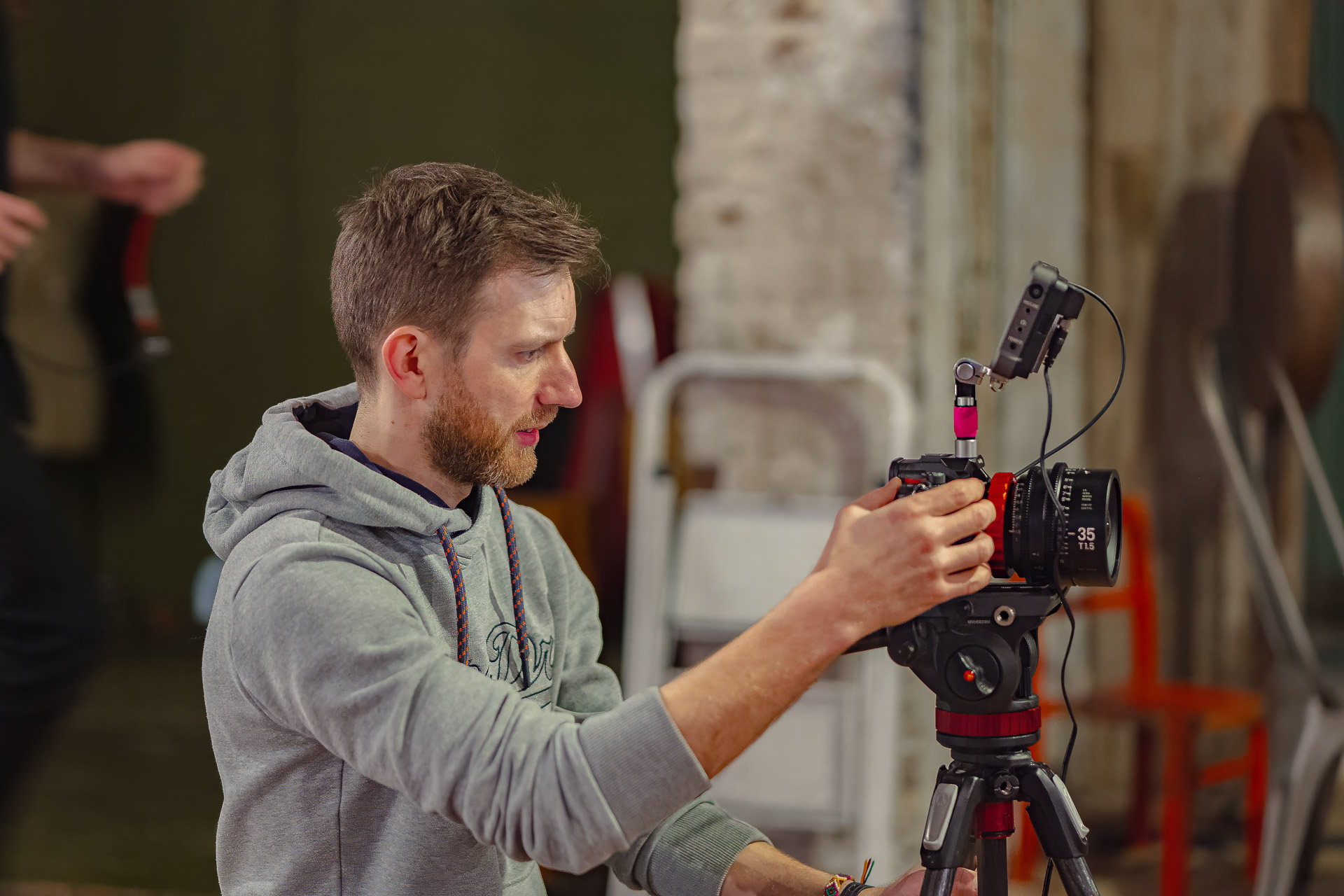
The real key to running a good show is the preparation. At Twelve Noon Films, we spent four months getting ready for a one day shoot, squeezing set up and four sit down interviews into a mere ten hour hire period. Location was crucial to achieving the look of the show. We spent a long time researching venues that could provide an industrial-looking filming space, staging area, green room, and kitchen. We were lucky to find Belt Craft Studios for that. But the real treasure is the guests.
Securing guests and managing release forms is another part of the process normally handled by a wider production team. Fortunately, my twenty year career in marketing has connected me with many interesting people. But even with close contacts, it’s still important to get the legal aspects of using a person’s likeness and voice done properly right from the start, but here again there are more options than once there were. Sites like Tropic Color now offer contracts and agreements packs, and there are plenty of online resources to generate and consult on those documents. Broadcasters and studios would naturally want to review and even revise these agreements, but for a platform like YouTube it more than covers the legal requirements.
We also knew that we didn’t want famous people involved. So getting the right guests was going to be important. We’ve seen a lot of celebrities and there are so many platforms for them to appear on, but what about the interesting, insightful, inspiring people we never hear about? That’s what we really wanted to focus on: good stories from good people.
The micro crew
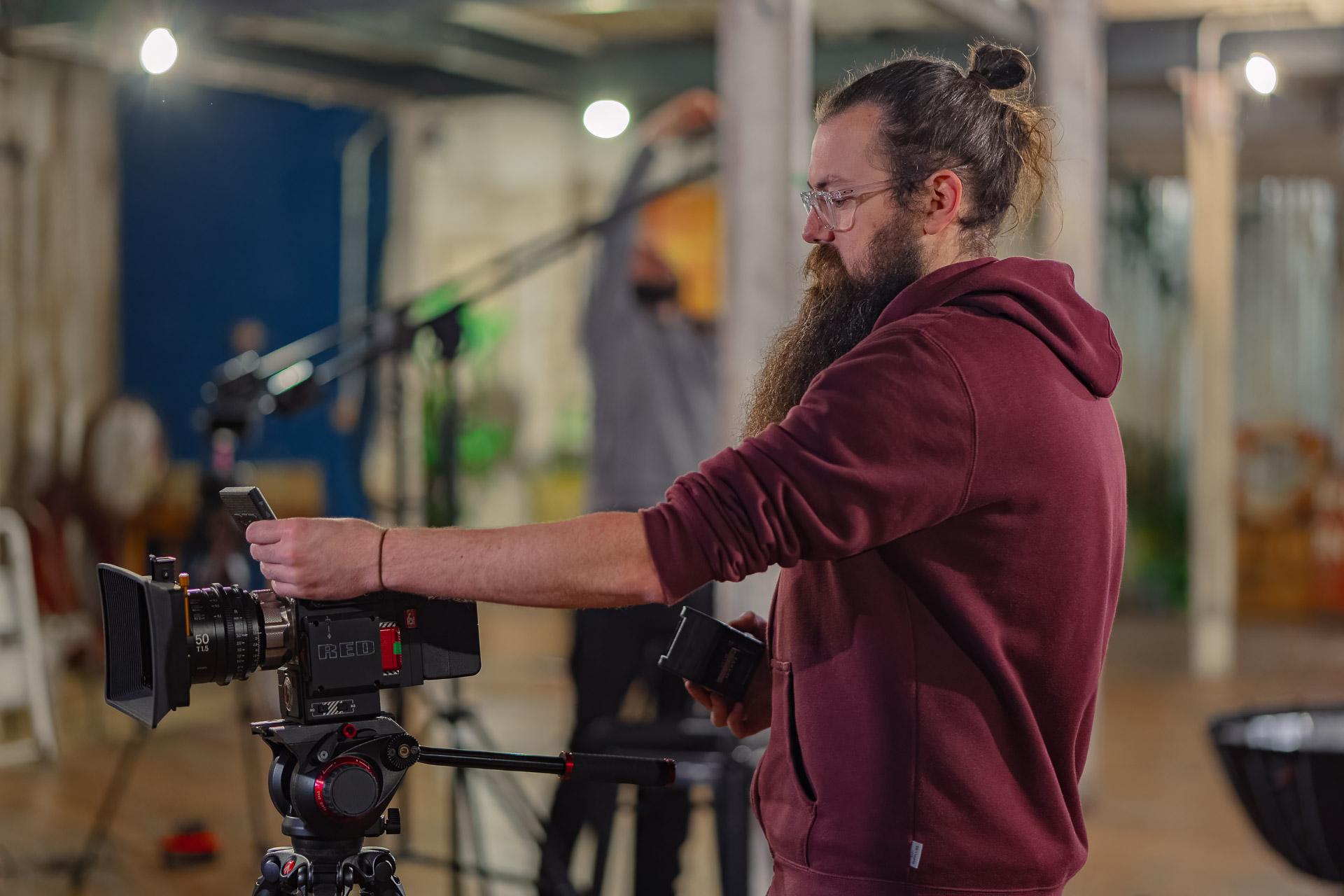
What’s particularly impressive about Forty Minutes With is how every aspect of the production was handled by one of just four people. I serve as producer, director, editor, and host. I'm also pushing the marketing and PR side of the work. Jake is purely focused on crafting the visuals and shooting the show in a way that works well for the edit. Sound recordist Dale Suttle was onboard for the shoot day itself and to assist in audio post production, and BTS photographer Alex Fryer captured the action during setup and filming.
This is the benefit of a multidisciplinary crew, which is becoming more and more commonplace in film and TV production. Directors who can edit, producers who can present, actors who can produce… the list – and potential – goes on. And will continue to develop as technology leaps forward.
If we get the backing to do more episodes we’ll look to bring on more people. But we’ll still keep the crew small – a fraction of what you would normally see. It’s part of what makes the show so special and the guests comfortable enough to sit down with us for those forty minutes.
For getting started on YouTube, see Creative Bloq's guide to the best video editing software for YouTube.

